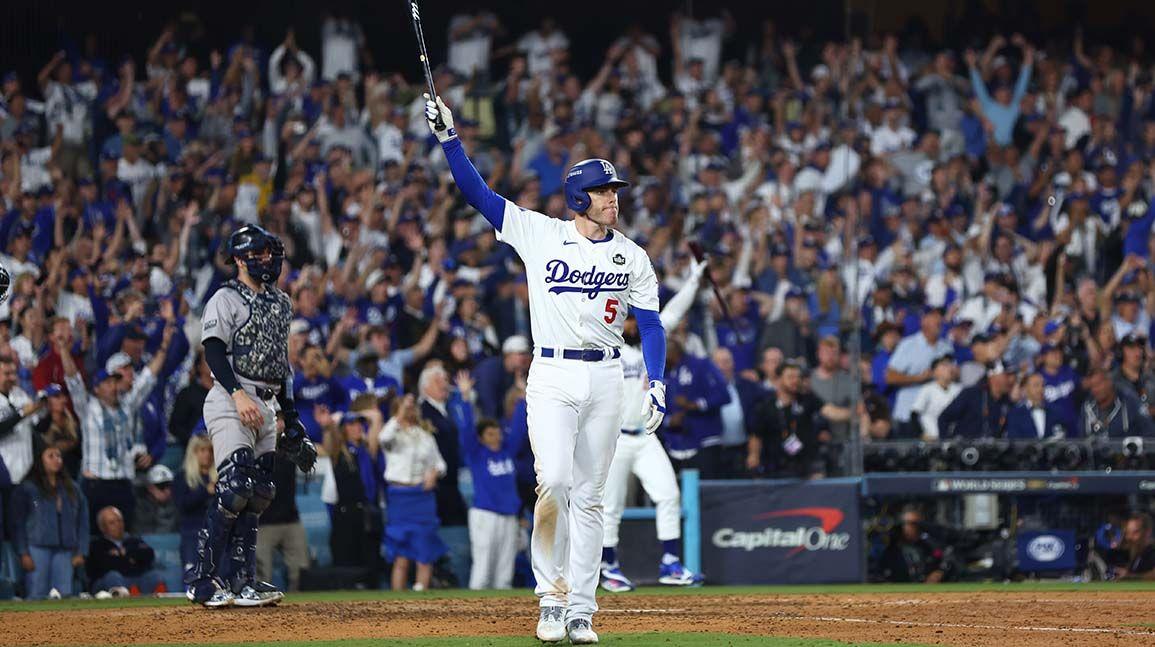MLB Advanced Media, the media arm of Major League Baseball, filed a trademark for the phrase “Gibby meet Freddie” with the United States Patent and Trademark Office for apparel Monday.
The phrase originated Friday during World Series Game 1 as broadcaster Joe Davis called Freddie Freeman’s walk-off grand slam, referencing echoes of Kirk Gibson’s historic pinch-hit homer in Game 1 of the 1988 World Series for the Dodgers.
In the days since, the call has been replayed countless times on social media as fans rewatched the game-winner and admired the quick-thinking of Davis' ad lib, made even more unbelievable when it was discovered Gibson and Freeman both hit their walk-off homers at exactly 8:37 p.m. PT.
The trademark was filed to include: “Clothing, namely, headwear; shirts; sweaters; vests; bottoms as clothing; dresses; skirts; athletic uniforms; jerseys being clothing; underwear; undergarments; sleepwear; robes; swimwear; jackets; sweatshirts; ponchos; aprons; clothing wraps; infant wear; cloth bibs; ties; belts; footwear; socks; hosiery; scarves; gloves; mittens; headbands; wristbands as clothing.”
In the filing, MLB Advanced Media does not mention Gibson or Freeman, despite trademarks referencing living individuals requiring sign-off. Nor does it mention Davis, who, depending on his contractual agreement, could have a claim to the phrase as his own intellectual property.
Trademark filings for lines said by broadcasters on-air are quite rare, according to trademark attorney Josh Gerben. One famous example came when Augusta National filed a trademark for the phrase “A Tradition Unlike Any Other,” which was first coined by broadcaster Jim Nantz. A representative for Nantz at the time told ESPN while Nantz was unaware of the filing, it was not seen as an issue: "It's the same language in every contract. … Whatever work you do for the network is owned by the network, not you."
Boxing announcer Michael Buffer trademarked his well-known phrase "Let's get ready to rumble!" in 1992 and had generated $400 million in revenue licensing the phrase for music, video games and merchandise as of 2009, according to ABC.
This is a particularly unique case, due to the fact the trademark references two living individuals, which is generally not the case for phrases teams or leagues have attempted to trademark in the past. “It raises some interesting questions,” Gerben said.
As for why the league decided to file the trademark now, Gerben sees it as a move to protect the historic moment with the filing. “This is going to become part of the history of the game, and in today’s world, you try to protect history with trademark filings.”
Will Stern is a reporter and editor for cllct.

